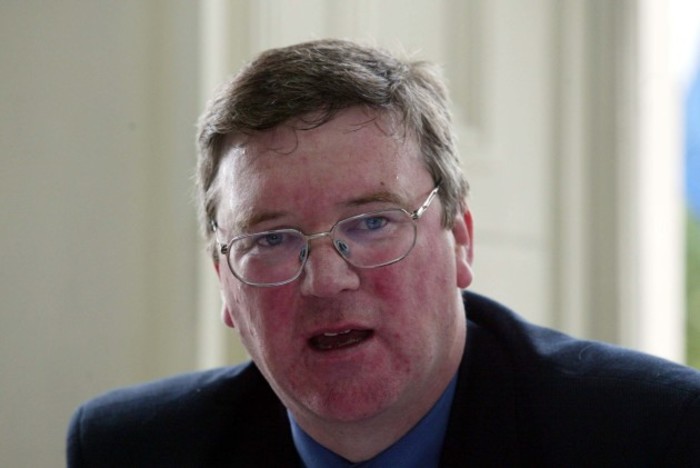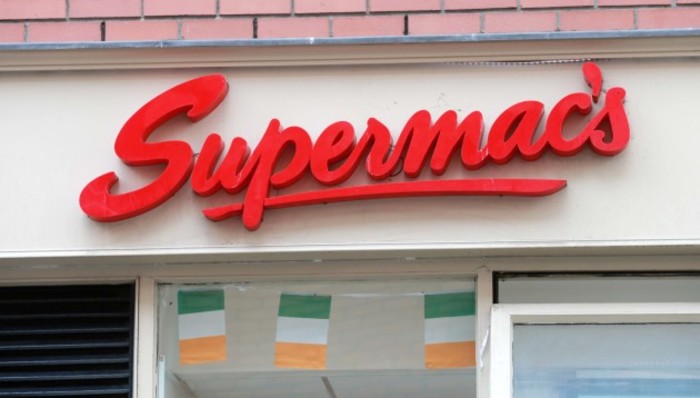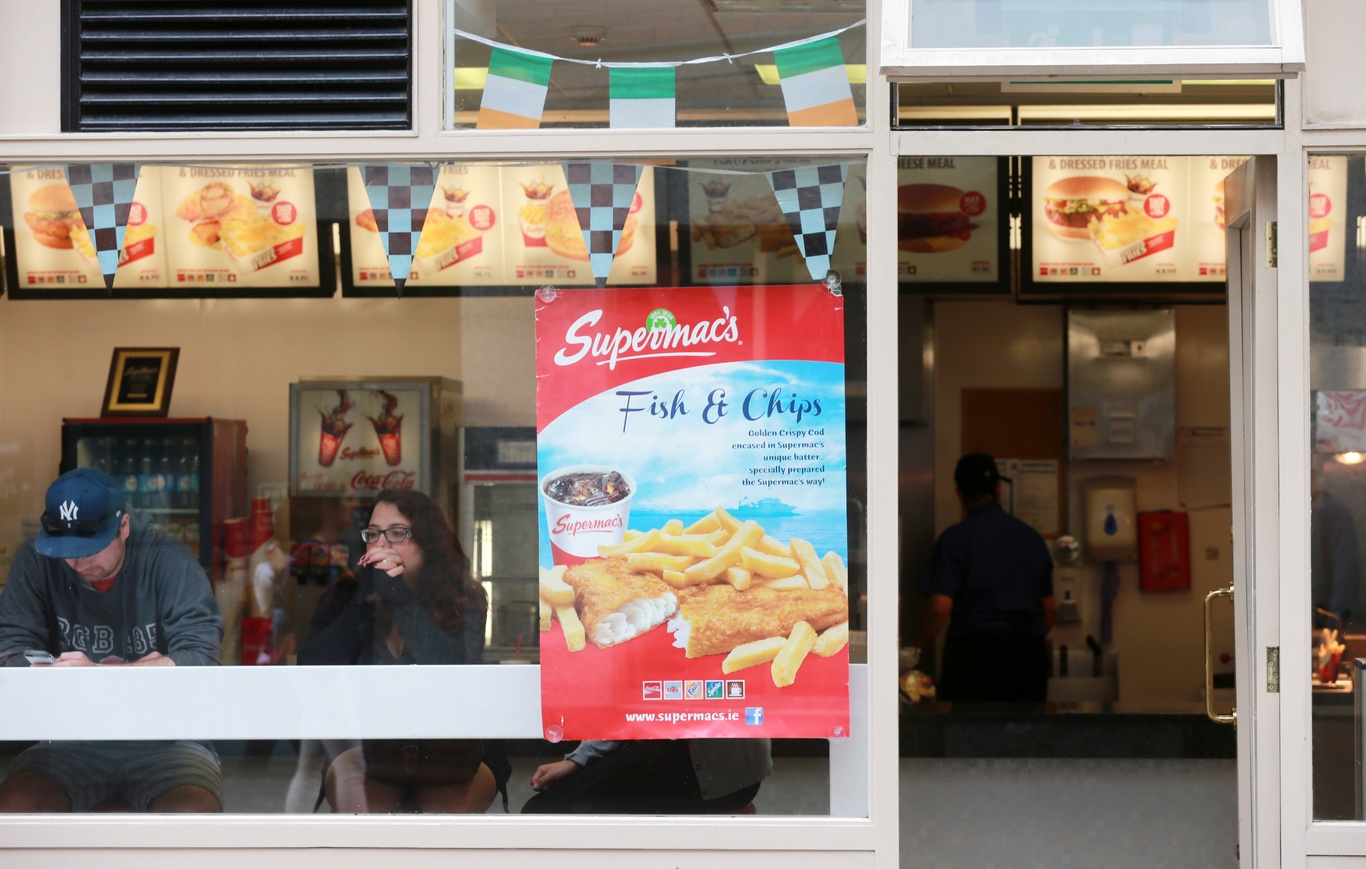After delivering another tasty profit, Supermac's is testing Deliveroo - with mixed results
Pat McDonagh’s fast-food empire is trialling third-party delivery services as it posts record sales.
PAT MCDONAGH’S SUPERMAC’S has quietly been dipping a toe into the third-party delivery market as revenue and profits soar at the indigenous fast-food chain.
The Galway businessman, whose company began with a single outlet in Ballinasloe 40 years ago, also expects to open up to 10 extra outlets during the next 12 months, pushing its network to more than 120 company-owned and franchised stores across Ireland.
McDonagh told Fora that the company was also looking at varied parts of the market, like home deliveries and forecourt-based food offerings, for growth as the fast-food business approached an inevitable saturation point.
“I see the home-delivery part of the business becoming much bigger, growing in double-digit figures in the next few years,” he said.
Supermac’s and sister chain Papa John’s have been running limited trials using Deliveroo from locations in Dublin and Cork in addition to an in-house delivery service the outlets have progressively been rolling out.
However McDonagh said the trial was only “at the very early stages”, with one of the two third-party delivery areas “working quite well” and the other “not so well”.
While the addition of Uber Eats to the local food-delivery market has added more competition to the sector, the high commission the services charge restaurants on orders – routinely 30% or more – have caused some food businesses to reject the platforms.
“That’s the challenge, they’re looking for a large slice of the cake – some businesses can afford it and others can’t,” McDonagh said.
The main rivals of Supermac’s have taken differing approaches to the third-party delivery services, with McDonald’s launching on Uber Eats earlier this month, while Burger King rolled out deliveries with Just Eat in September.
 Supermac's managing director Pat McDonagh
Supermac's managing director Pat McDonagh
A slowdown
Fresh accounts for McDonagh’s Supermac’s group, which includes the fast-food chain, as well as hotel and forecourt businesses, show the company posted sales of more than €157 million last year – a 15% increase on the 2016 tally.
It has lodged plans for new forecourt developments outside Portlaoise and Ennis in a bid to repeat the success of the group’s Barack Obama Plaza development, although the Clare project has been stalled in planning after the council requested further information.
The proposal was mired in controversy after a series of bogus letters were submitted to the local council in support of the project. McDonagh has said his company had no part in the sending the letters.
The group’s pre-tax profits hit €21.9 million, up from €15.9 million the previous year, while net assets topped €103 million.
The business, co-owned by McDonagh and his wife, Una, had an average of 1,621 staff on its books in 2017, 88 more than during the prior 12-month period.

McDonagh said he expected the group’s turnover to “be up considerably” in 2018, reaching in excess of €170 million.
However he added that there had been “a bit of tightening of the belt over the last couple of months” among consumers, and he expected that to be a drag on growth next year.
“There is a market change out there at the moment, there is a loss of confidence, whether it’s because of Brexit or the cost of living,” he said.
The company’s biggest challenge, like other firms in its sector, would be finding and holding onto staff as the country neared full employment, McDonagh added.
“The opportunity for people to work anywhere they want is continually growing. As the service industry probably isn’t viewed a lifetime career, you have less people looking at it – because of the long hours and people becoming more demanding as well.”
While the Supermac’s boss has previously flagged increased automation in stores to insulate the company from staffing shortages, he said that the food and hospitality trade was still “a people industry” and there was a limit to the role that technology could play.






